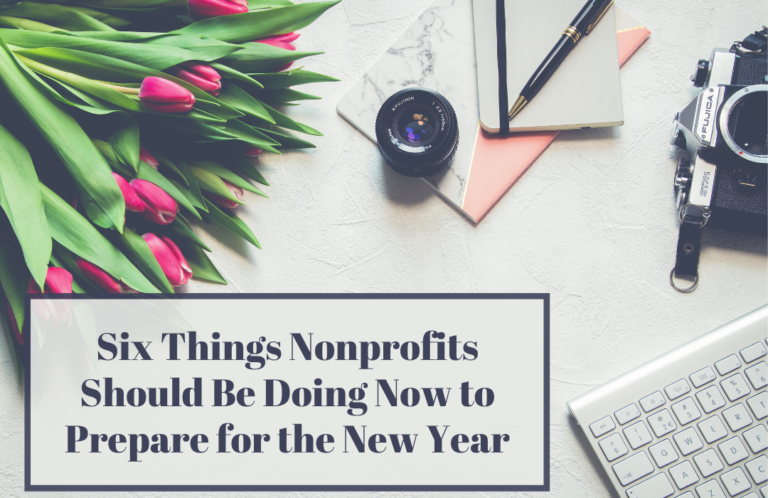It’s pretty late to start planning a fundraising campaign. Ideally, your year-end appeal would have gone out before Thanksgiving, but I’ve been in this field long enough to know that I’ll continue to hear from organizations I love and support, even as the date inches closer to the holidays.
I understand: You didn’t have the time or the capacity to plan a campaign, but you don’t want the year to end without making at least a small effort to raise funds. I’m here to tell you that all is not lost! There are still steps you can take to maximize the effectiveness of your last-minute appeal.
Here are some best practices and tips for launching a 4-Week Fundraising Campaign:
#1 Activate leadership and staff at all levels
To get things rolling, set up a meeting (or, if you can, a few meetings!) – with your Board, your staff, and maybe even your most active volunteers and constituents. The goal is to engage all of your most important stakeholders in the fundraising effort. Here’s an example of what the agenda might look like:
- Introduce the fundraising campaign
- Ask everyone if they will participate, and how much they might realistically raise from their personal networks. Ask them to create lists of prospective donors.
- Tally up the donation projections and make fundraising goals for each team, i.e. Board, staff, volunteers
- Create a fundraising campaign theme that will inform all forms of solicitation
- Make sure that your website has a payment platform (i.e. Paypal, Stripe, etc.), or use FaceBook’s fundraising platform.
- Schedule a second meeting to create the pitch, and ask that everyone come prepared to share their personal reason for supporting your organization
- Set up a calendar with dates for calling personal networks. Remember, an email or a social media post is not enough to achieve real donor cultivation. Everyone must make their calls.
#2 Don’t expect to warm up a cold list at the end of the year
I see so many organizations that are not regularly active online or via email newsletter, but launch their fundraising campaigns with a social media or email ask. Imagine your response if you heard from a beloved friend only two times a year, and the second time they asked for money! You can see that it’s not the ideal strategy… I’m not saying you shouldn’t send an end-of-year email in conjunction with your campaign, but unless you are regularly engaged with your community in this way throughout the year, that email should focus more on sharing the impact of your work, than on asking for donations.
Let’s be real: At this point, your biggest opportunity for success is through direct solicitations: You, your Board members, and your staff and volunteers should start calling your closest colleagues and friends to cultivate those relationships. Though it’s still essential to plan and implement an appropriate online strategy, the focus of a late year-end appeal should be on personal networks – those people you already have close relationships with, and who are engaged and committed to your mission in some way.
Simultaneously, you should create weekly emails, blog posts, or video blogs, and four weeks worth of social media posts that educate and inform all followers of your organization’s mission, who you serve, and your impact in the field. Provide everyone who has agreed to participate in the fundraising campaign with the links to your social media and website, videos, marketing pieces, and other material they can send to their networks and post online.
#3 Check-In
Schedule a meeting and ask everyone to share their experiences with the phone calls and making their pitch. This will strengthen everyone’s confidence, give them fresh language and ideas, and inspire them to keep making calls. If any donations have come in, this is the perfect time to share what has been raised, and instigate some momentum!
#4 Remember to Say Thank-You
Not only to the donors, but to the Board members, staff, and volunteers who stepped up. Starting a campaign this late in the game requires dedicated people who are passionate about your organization and willing to extend themselves on your behalf. They deserve to be recognized as ambassadors of your organization.
Count your successes and examine the lessons you’ve learned. Consider this a test-run of your current fundraising capacity. No one should be made to feel bad because they weren’t able to give their all to this campaign under last-minute pressure. But those who were ready to open their networks and “make the ask” will learn from the process and be better prepared next year, when you will plan in advance to provide training and support for an even more successful campaign.
Let 2020 be the year when you immerse your organization in fundraising and develop a fundraising culture from the Board to the volunteers.
Let me know if you have any questions or if you found this article helpful.
All the best,
Lydia







